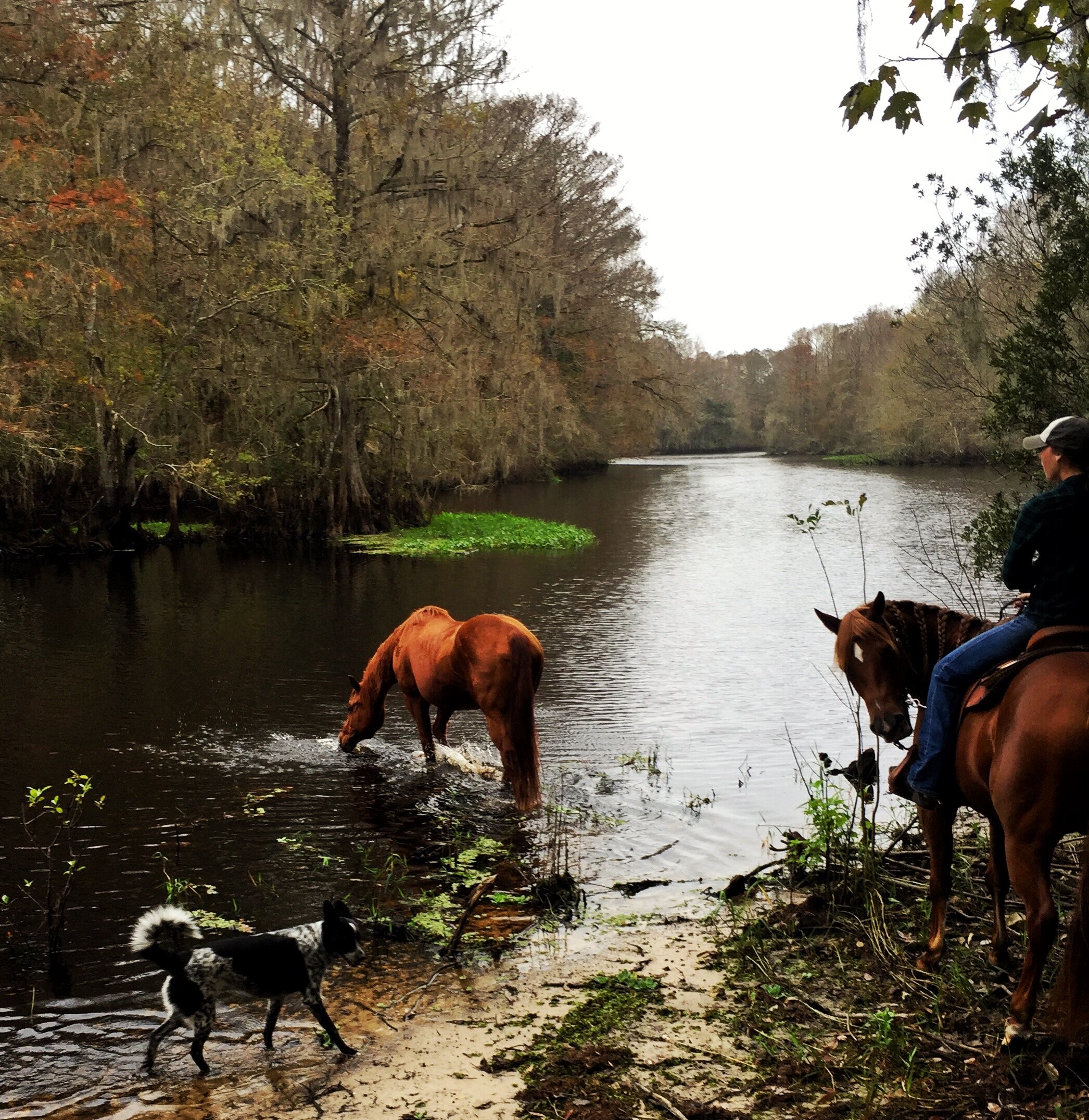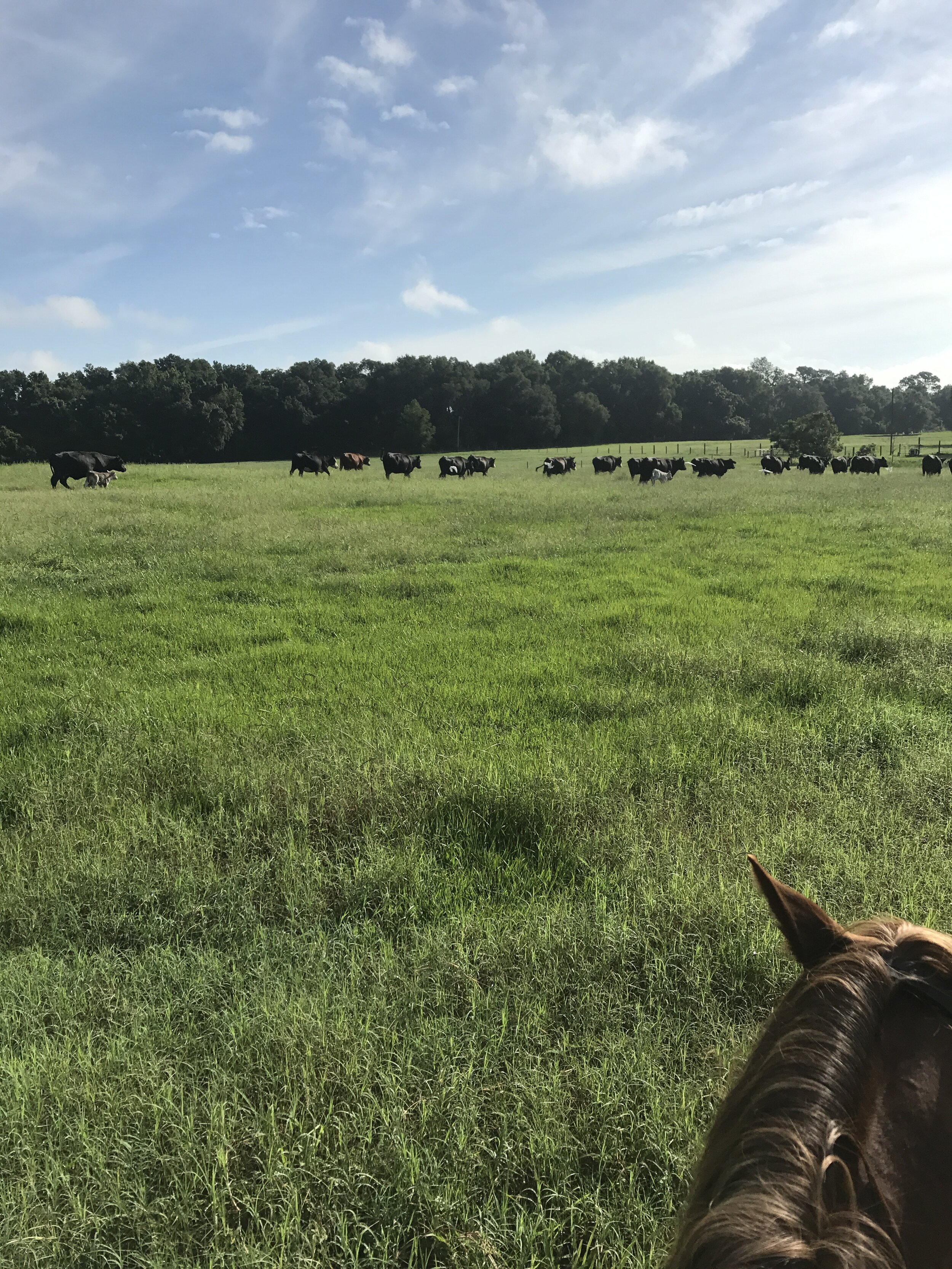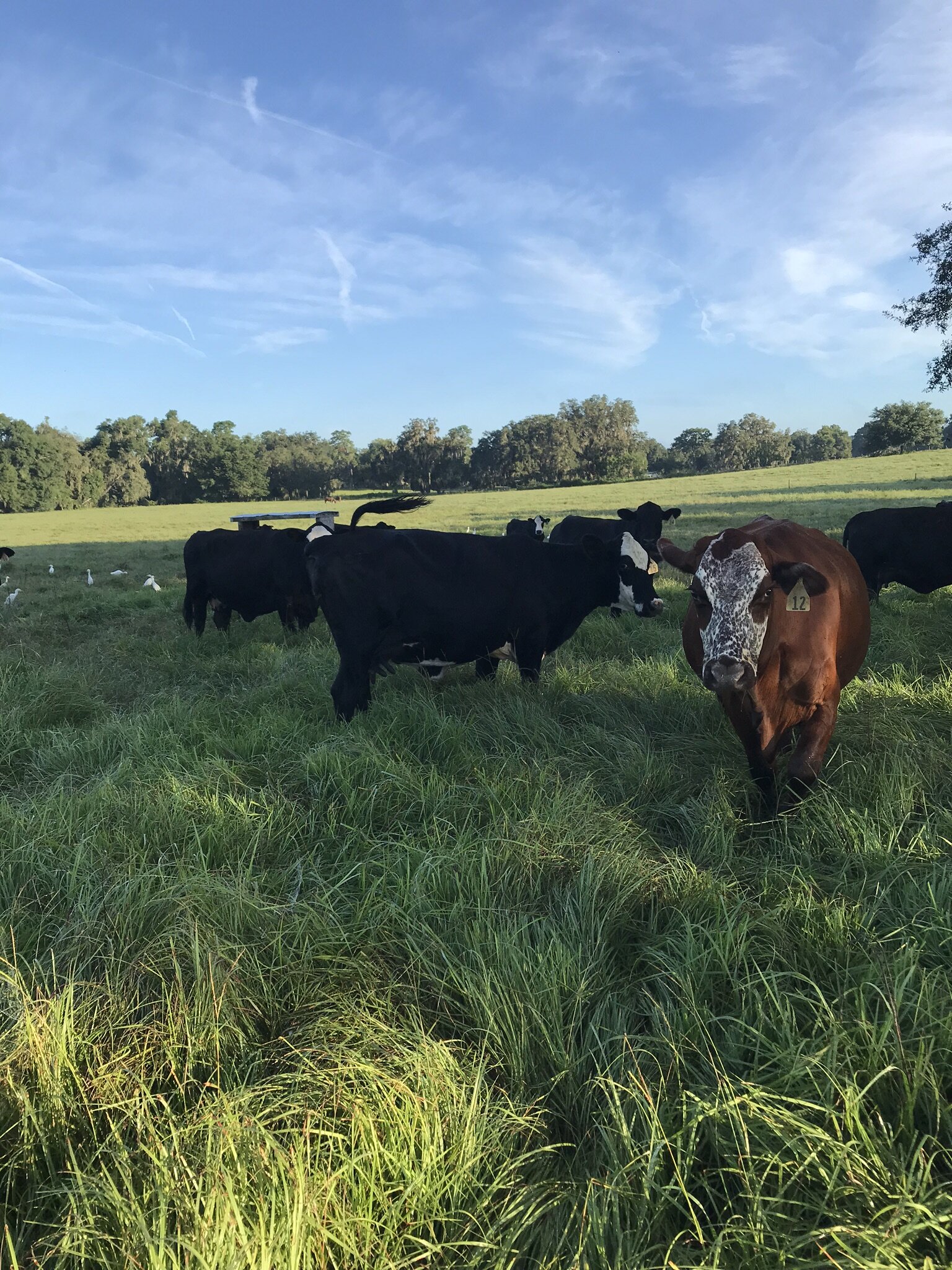Sometimes you have to do a little off-roading on the ranch. These pictures were taken recently when I was trying to find a break in the fence where some calves escaped. It is a part of the Riverbend Ranch property that’s marshy, and can be harder to access. I can really only get there by horse or on foot, depending on how wet it is. Despite having to be on constant watch for a camouflaged gator or water moccasin, it’s still one of my favorite places to be, down by the river.
I mentioned in my Instagram stories last week that I’d be fertilizing some pastures out here. These pastures are on the opposite side of this property from the river’s edge. The nutrients in the grass all comes from the nutrients in the soil that it grows from, so when the grass is grazed by livestock, the nutrients in the soil is slowly depleted. It all gets put back into the soil in the form of manure, but that’s not always enough to keep the pastures producing enough high quality forage each year, depending on the situation. On larger ranches with lower stocking rates (number of animals per acre of land), fertilizing isn’t always needed. But since I run a small farm, I need to supplement some nutrients to the soil in the form of fertilizer, in order for it to grow good quality forage for the cows the following year.
Believe it or not, I only fertilize less than 50% of this property. Commercial fertilizer is sometimes believed to have negative effects on the environment. Since it’s not an organic nutrient, it’s not always absorbed as well into the soil, and can run off or leech into water sources more easily. I fertilize with organic fertilizer sources (chicken manure, among others), which has longer lasting benefits to the health of the soil. Even organic fertilizers can have a negative effect on water sources, if the levels of nutrients are too high or go to the wrong places. The main source of fertilizer I use is Nitrogen, so since that can have negative effects on species living in the river, I don’t fertilize in a range that can leech into the water.
There’s a common misperception that farmers and ranchers fertilize without any regard for the effects it might have on the environment. But if you looked at an aerial view of this farm, you’d see the whole picture.
Just like the rest of Florida’s ranchers, I follow the BMP’s (Best Management Practices) given to me by the Natural Resource Conservation Service. There is an entire book of BMP’s that ranchers are rewarded for following. Another example of a BMP is how I built fence to keep the cows out of the river. Their manure is another source of Nitrogen, so it’s believed that if they’re able to poop right in the water, it negatively effects the balance of that whole ecosystem & the animals in it. Cattlemen know that if we take care of the land, the land will take care of us.
I may only be a first generation rancher, but my family has been in Florida as far back as we can trace. And my hope is that future generations will still be able to experience a little bit of the old Florida that still exists. But if it weren’t for our ranchers, I’m not sure that would even be a possibility.
If you want to know more about Florida’s ranchers and how they’re working to conserve Florida’s environment, I strongly urge you to listen to the Between the Beaches Podcast. Today’s episode featured Matt Pearce, current president of the Florida Cattlemen’s association, and talks about our state’s incredible ranching heritage, and how we can work to preserve it. Even if you’re not a cattleman…if you enjoy hunting, fishing, or anything about our wild Florida, this episode is worth listening to.
About Riverbend Cattle Company
Riverbend Cattle Company is a cattle ranch located on the shores of the Withlacoochee River and Bonnet Lake, just outside historic Floral City, Florida. We raise grass-fed, grain-finished beef cattle in a compassionate and sustainable manner so that the beef is healthy and tastes amazing. We offer a one-stop shop for families and individuals that want to incorporate a healthy and local meat diet into their lives. Our mission is to carry on the rich Florida farming history by offering and supporting local families and their recipes, handed down for generations.



